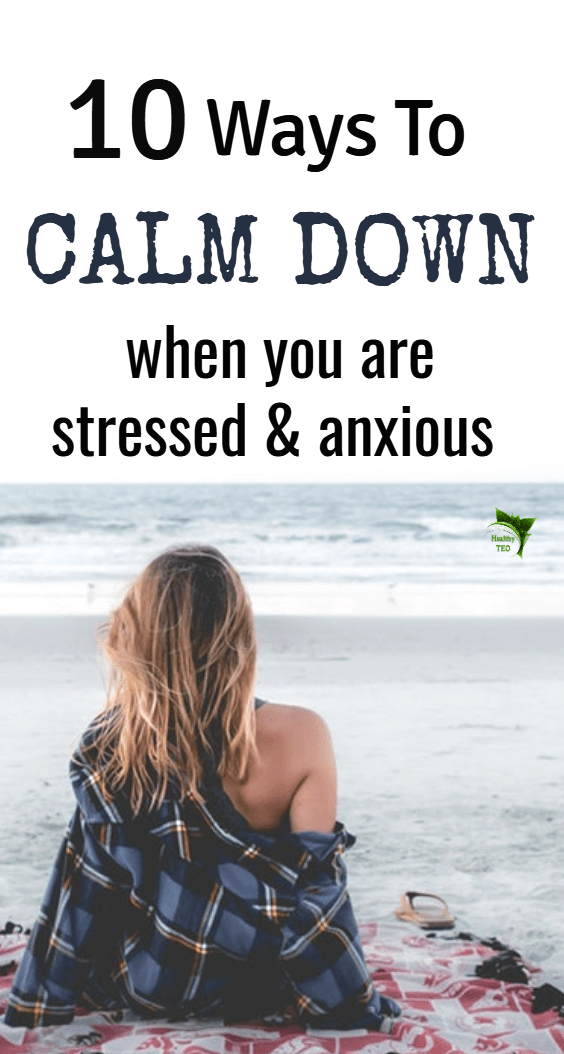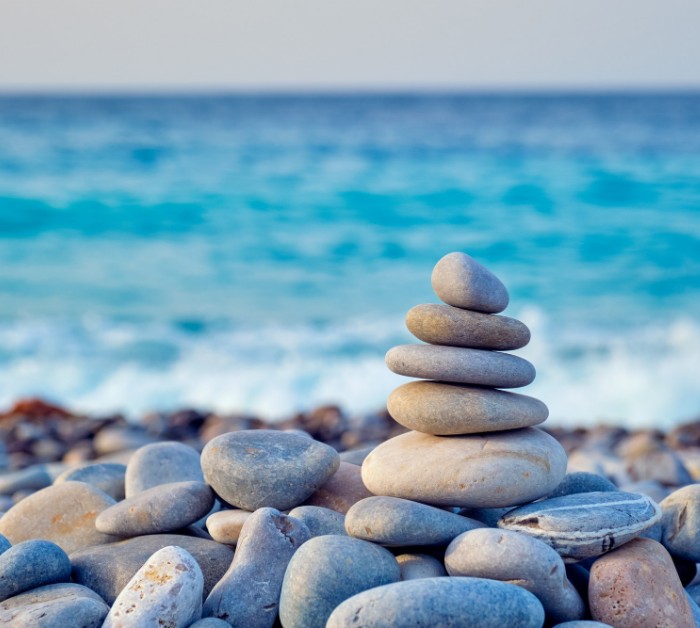Effective techniques that will help you to calm yourself down
Working under pressure, paying bills and mortgage, no time for yourself are few things that make us stressed and anxious.
But to keep our health and well being we need to learn how to calm down our nerves and stay positive in every situation.
Staying calm in a crisis or every stressful situation is crucial because the actions we take in those moments can affect our future life. We must have a clear mind and positive emotions.
Depression, exhaustion, and stress are bad company in the moments when you have to make effective and intelligent actions. When you are positive and relaxed the possibility that you will find a good solution to a problem increases significantly.
In dangerous situations, your body activates a defense system that helps you to escape. Thanks to this mechanism humans can avoid the dangers of the natural world, but this mechanism also activates and respond to other threats too.
This alarm system is activated in every situation when you feel that you are in danger, whether it is real or not. Your body immediately turns on stress mechanisms and they are preparing you for fight or flight. If you feel threatened in any way, no matter it is real or not you will feel symptoms like sweating, irritability, heart palpitations, and anxiety.
Don’t worry this is a natural mechanism that will help you to deal with every danger, but it is important to manage your stress properly so that it doesn’t become chronic. We know that chronic stress leads to many health issues.
To be able to think clearly, not overreact, make the right decisions we will share with you 10 strategies and habits that will help you to calm down and keep moving forward.
How to calm down when you are stressed and anxious
1. Control your breath
According to Scot Dehorty LCSW-C of Delphi Behavioral Health, breathing is the number one and also the most effective technique for reducing anxiety and anger quickly.
Whenever you are anxious or angry you tend to take quick, shallow breaths. This can make you feel dizzy, light-headed.
It can interfere with our judgment. If you notice that you are hyperventilating (quick and shallow breaths) try inhaling a deep breath through your nose, holding it a second and release it from your mouth. Repeat this exercise until you feel calmer.
There are many other breathing techniques that you can use to calm down and release stress. It is good to know that only with breathing you can release stress and it takes only a few minutes to be relaxed and calm again.
2. Drop your shoulders
If you are tensed your posture will suffer too. Sit up tall, take a deep breath and drop your shoulders. To do this, you can focus on bringing your shoulder blades together and then down. This pulls your shoulders down. Take a few deep breaths. You can do this several times a day.
3. Get some fresh air
If you are in a hot and stuffy room and feeling tense, this could trigger a panic attack. The first thing you should do is to leave the environment and go outside – it is enough just a few minutes. The fresh air will help you to calm down and also interrupt your anxious or angry thoughts.
4. Music
This is simple, the next time when you feel angry or stressed just put on your headphones and turn on your favorite music. Listening to music have a very calming effect on your body and mind.
5. Count to 10
When your problems are coming from everywhere one by another, take a break and look at the situation with a fresh pair of eyes. It only takes two seconds to count to 10, which will give you the needed distance for a new perspective.
6. Focus on one thing at a time
Multi-tasking for some people is good but for many of us, it leads to chaos. It is better to choose one task, see it through, and then head on to the next task.
7. Challenge your thoughts
If you have irrational thoughts that don’t make any sense can be a good reason for you to be angry or anxious. You can name these thoughts the “worst-case scenario“. This so-called “what if” cycle can sabotage many things in your life.
When these thoughts start in your mind, stop and ask yourself these questions:
- Is this likely to happen?
- Is this a rational thought?
- Has this ever happened to me before?
- What’s the worst that can happen? Can I handle that?
After you go through the questions, it’s time to reframe your thinking. Instead of “I can’t walk across that bridge. What if there’s an earthquake, and it falls into the water?” tell yourself: “There are people that walk across that bridge every day, and it has never fallen into the water.”
8. Visualize yourself calm
Create a mental picture of what it looks like to stay calm. To do this use one of the breathing techniques mentioned above, or take a few deep breaths, close your eyes and picture yourself calm. See your body relaxed, and imagine yourself working through a stressful or anxiety-causing situation by staying calm and focused.
9. Take some time for yourself in nature
Spend some time in nature to recharge yourself. You can do this by walking in the nearest park or whatever green place with trees and grass near you. It will help you to recharge and calm down.
10. Fuel your body
If you are not properly hydrated or you are hungry, these techniques mentioned above won’t help you. That’s why it is important to slow down and get something to eat-even a small snack will help.
The importance of a clear mind and why you need to calm down
In high-pressured or stressed situations many people respond poorly. They become anxious, nervous which harms their well-being. A clear mind can make a difference between the right choice and mistakes.
Even the normal stress that you feel in a new or unpleasant situation can become chronic if you don’t know how to deal with it. Chronic stress will be the biggest obstacle in your life, that’s why it is important to know how to calm down in any situation and move on.
If you want to save your health and well-being, and we are sure that you do, remember these techniques mentioned above and practice them in any stressful situation.
And the most important thing, live in the moment instead of worrying about future threats or problems.





